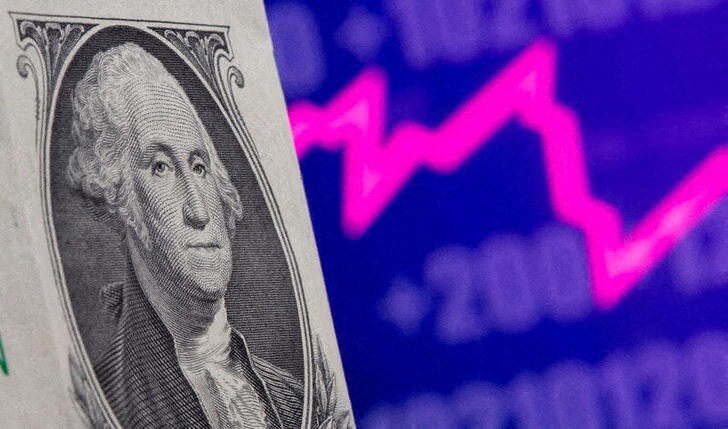By Marc Jones
LONDON (Reuters) - World stock markets got 2022 off to a confident start on Monday after their third consecutive year of double-digit gains, while the dollar, oil prices and benchmark government bond yields all made early moves higher.
London's traders were enjoying their final day of festive rest, but mainland Europe saw a lively start, with the STOXX 600 index notching up a quick record high after a flurry of encouraging data from the euro zone and eastern Europe.
The euro zone's Manufacturing Purchasing Managers' Index (PMI) dipped to 58.0 in December from November's 58.4, but it matched an initial "flash" estimate despite a recent surge in coronavirus infections and was still comfortably above the 50 mark separating growth from contraction.
"We're seeing some tentative but very welcome signs that the supply chain crisis which has plagued production lines all across Europe is beginning to recede," said Joe Hayes, a senior economist at IHS Markit that compiles the PMI survey.
The data also showed firms' stocks of purchases rising at a survey-record rate in December. That meant the input prices index sank to an high eight-month low, even though it remains relatively high, allowing factories to raise their prices at a much slower pace.
"Easing inflation rates are again a welcome sign, but we're still in hot territory," Hayes added.
As trading settled, bourses in Germany, France, Italy and Spain rose between 0.8% and 1.1%, and 10-year German government bond yields - the benchmark for European borrowing costs - were up 4 basis points at their highest level since November. [/FRX]
The prospect of higher rates lifted euro zone bank stocks 1.2% while carmakers were up 1.8% after both Tesla and Hyundai had issued bullish targets for this year.
LIRA
In the currency markets, the euro zone data failed to lift the euro as focus remained on how much further the dollar could rise if the Federal Reserve hikes U.S. interest rates a number of times this year, as is currently expected.
Turkey's lira saw a bumpy start to the year, diving as much as 5% before a partial recovery, as its central bank revealed it had used up more than $3 billion of its reserves last month when the currency slumped to record lows.
Turkey's statistics agency also reported that annual inflation jumped far more than expected to 36% year-on-year in December, the highest since September 2002.
"This reflects a vicious cycle of demand-pull inflation, which is very dangerous because the central bank had implied the price pressure was from supply constraints, and that it couldn't do anything about it," said Ozlem Derici Sengul, founding partner at Spinn Consulting in Istanbul.
The commodity markets were quickly back in the swing of things after a stellar last 18-20 months for most of them.
Oil rose towards $79 a barrel on Monday, supported by tight supply and hopes of further demand recovery in 2022 spurred in part by a view that the Omicron coronavirus variant is unlikely to shut down the global economy again. [O/R]
OPEC and its allies, known as OPEC+, are expected to stick to a plan to raise output gradually at a meeting on Tuesday.

Brent crude, which leapt 50% last year and is up 80% from the COVID-triggered lows of 2020, rose $1 cents, or 1.3%, to $78.86 a barrel. U.S. West Texas Intermediate (WTI) crude added $1.03 or 1.4%, to $76.24.
"Infection rates are on the rise globally, restrictions are being introduced in several countries, the air travel sector, amongst others, is suffering, yet investors' optimism is tangible," said Tamas Varga of oil broker PVM.